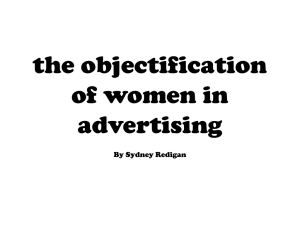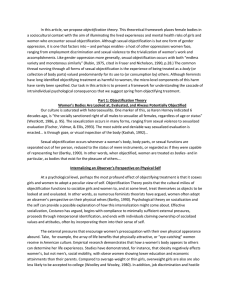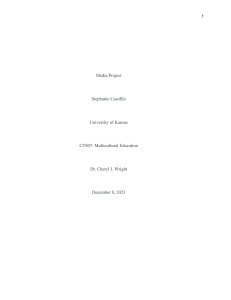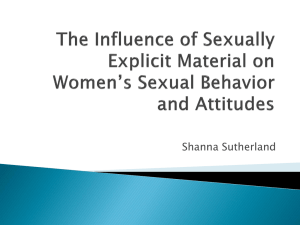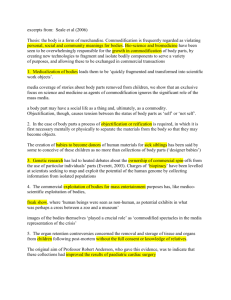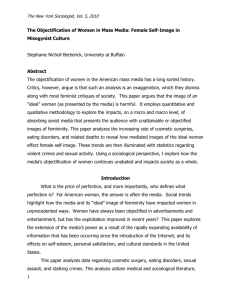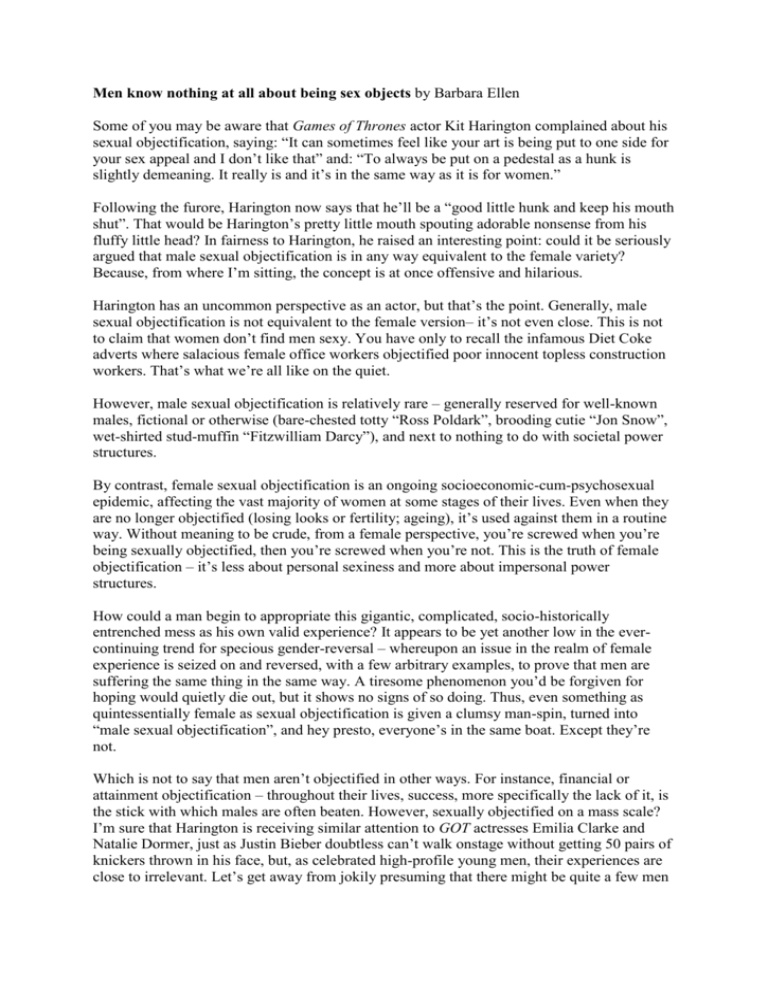
Men know nothing at all about being sex objects by Barbara Ellen
Some of you may be aware that Games of Thrones actor Kit Harington complained about his
sexual objectification, saying: “It can sometimes feel like your art is being put to one side for
your sex appeal and I don’t like that” and: “To always be put on a pedestal as a hunk is
slightly demeaning. It really is and it’s in the same way as it is for women.”
Following the furore, Harington now says that he’ll be a “good little hunk and keep his mouth
shut”. That would be Harington’s pretty little mouth spouting adorable nonsense from his
fluffy little head? In fairness to Harington, he raised an interesting point: could it be seriously
argued that male sexual objectification is in any way equivalent to the female variety?
Because, from where I’m sitting, the concept is at once offensive and hilarious.
Harington has an uncommon perspective as an actor, but that’s the point. Generally, male
sexual objectification is not equivalent to the female version– it’s not even close. This is not
to claim that women don’t find men sexy. You have only to recall the infamous Diet Coke
adverts where salacious female office workers objectified poor innocent topless construction
workers. That’s what we’re all like on the quiet.
However, male sexual objectification is relatively rare – generally reserved for well-known
males, fictional or otherwise (bare-chested totty “Ross Poldark”, brooding cutie “Jon Snow”,
wet-shirted stud-muffin “Fitzwilliam Darcy”), and next to nothing to do with societal power
structures.
By contrast, female sexual objectification is an ongoing socioeconomic-cum-psychosexual
epidemic, affecting the vast majority of women at some stages of their lives. Even when they
are no longer objectified (losing looks or fertility; ageing), it’s used against them in a routine
way. Without meaning to be crude, from a female perspective, you’re screwed when you’re
being sexually objectified, then you’re screwed when you’re not. This is the truth of female
objectification – it’s less about personal sexiness and more about impersonal power
structures.
How could a man begin to appropriate this gigantic, complicated, socio-historically
entrenched mess as his own valid experience? It appears to be yet another low in the evercontinuing trend for specious gender-reversal – whereupon an issue in the realm of female
experience is seized on and reversed, with a few arbitrary examples, to prove that men are
suffering the same thing in the same way. A tiresome phenomenon you’d be forgiven for
hoping would quietly die out, but it shows no signs of so doing. Thus, even something as
quintessentially female as sexual objectification is given a clumsy man-spin, turned into
“male sexual objectification”, and hey presto, everyone’s in the same boat. Except they’re
not.
Which is not to say that men aren’t objectified in other ways. For instance, financial or
attainment objectification – throughout their lives, success, more specifically the lack of it, is
the stick with which males are often beaten. However, sexually objectified on a mass scale?
I’m sure that Harington is receiving similar attention to GOT actresses Emilia Clarke and
Natalie Dormer, just as Justin Bieber doubtless can’t walk onstage without getting 50 pairs of
knickers thrown in his face, but, as celebrated high-profile young men, their experiences are
close to irrelevant. Let’s get away from jokily presuming that there might be quite a few men
who would happily sign up to be similarly objectified – even if it happened, they’d be
unlikely to experience the full, deep-rooted, multifaceted impact.
Where sexual objectification is concerned, fame is a game-changer for men, while merely
amplifying normality for women. To suggest otherwise seems misguided at least. Maybe it’s
time for men to speak up about things that genuinely affect them instead of putting a spurious
man-spin on typically female experiences.

